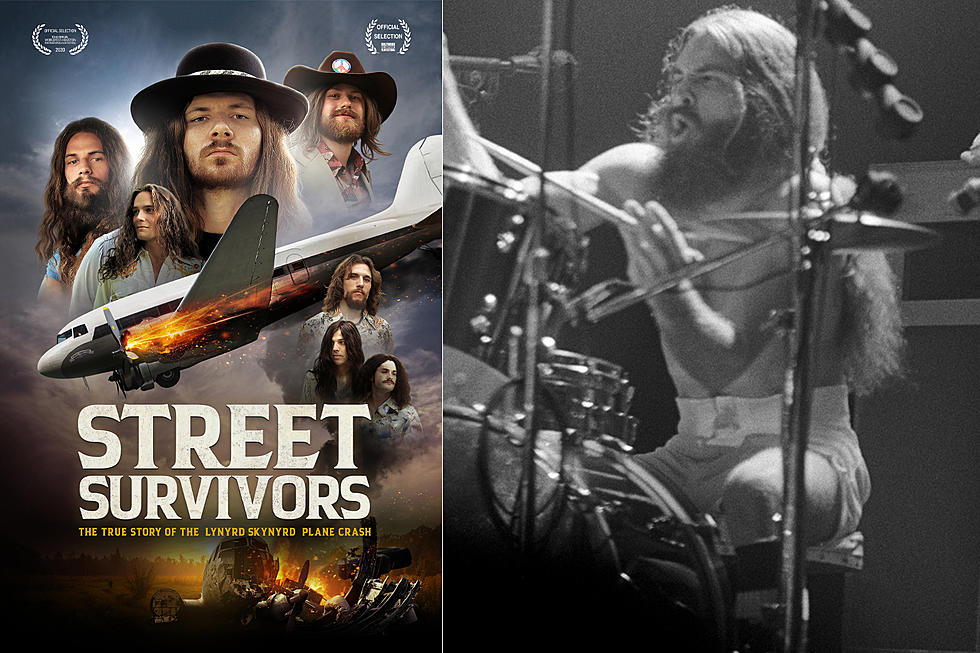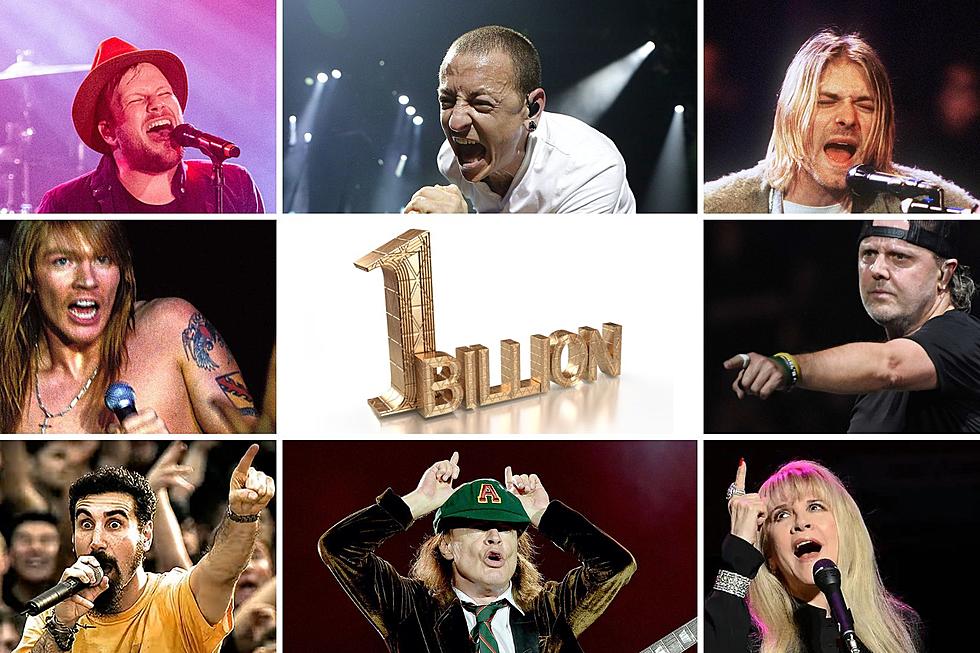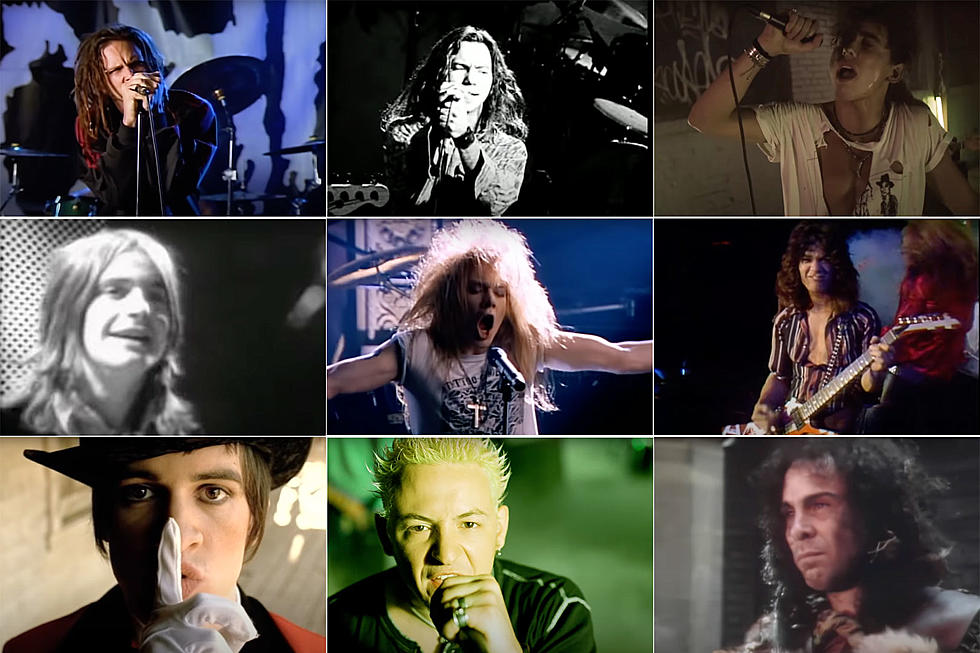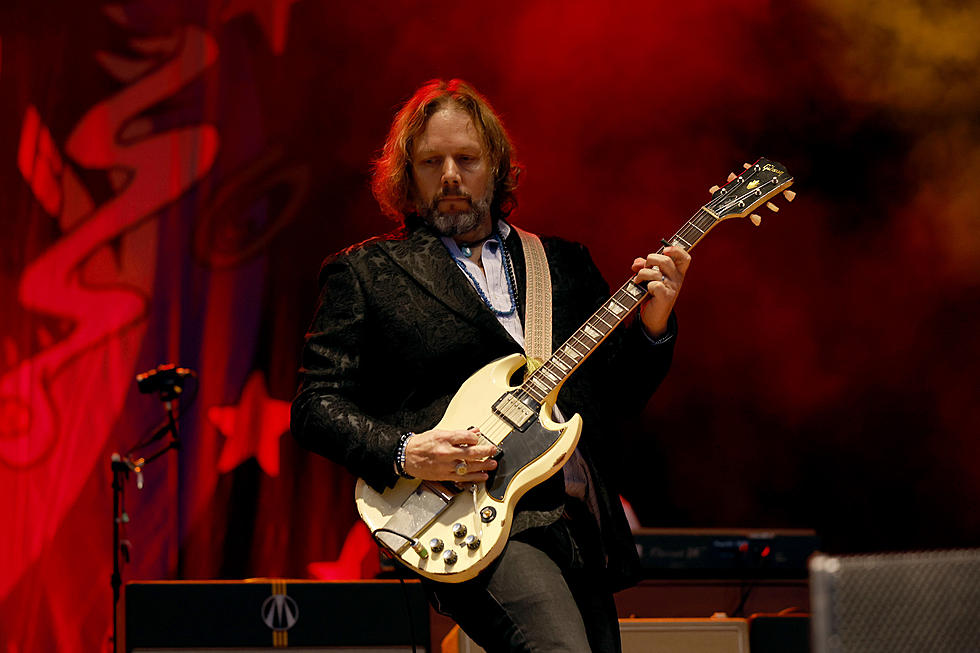
Why Artimus Pyle Isn’t Part of Lynyrd Skynyrd’s Farewell Tour: Exclusive Interview
After a bitter legal battle, drummer Artimus Pyle was finally able to tell his version of Lynyrd Skynyrd's tragic plane crash in the recent movie Street Survivors.
In a new interview, Pyle reveals that the 1977 incident that killed three of his bandmates was actually the third air crash he's survived in his life, recounts the efforts he took to tell the story correctly on a tight budget while being hounded by "blood-sucking weasel attorneys" and explains why he refused an invitation to be a part of his former band's current farewell tour.
How do you feel now that Street Survivors is finally out?
It's an overwhelming process. I'm a drummer in a rock band that runs bulldozers and flies airplanes. So I had no idea what it would be to put a movie together. It's an incredible process, I must say. So there's a lot of relief to have it finished, because it's been a hard-fought battle. We had a very small budget, and when I say small, I think it was about a million-and-a-half dollars to do a movie. It's a movie about something that really happened, so it's not just some frivolous flick that we put together. I feel that Lynyrd Skynyrd fans have been wanting to know what happened that fateful day and that night for a long time, and I felt like they deserved to get that story., even though it's tragic and even though it's intense. Because of today's technology and the CGI special effects, when we're coming into those trees and we're crashing, it looks and feels real. I've seen the movie 11 times, and I cry every time. I have the full gambit of emotions, everything: I'm happy, I'm sad, I'm relieved and I'm a little mad. We were sued by a bunch of blood-sucking weasel attorneys the entire time that we were trying to do the movie. I'm talking about $1,000-an-hour basically criminals that would sue their own mothers who were coming coming after me and Cleopatra films.
Enough credit cannot be given to Cleopatra, for hanging in there against Judy Van Zant and her ill-gotten millions that she uses to try to destroy everybody in Lynyrd Skynyrd. She never mourned Ronnie Van Zant's death. She celebrated it, and she hit the lottery. Ronnie was going to divorce her, but the divorce papers never got served. When Ronnie was killed, Judy became an instant billionaire. I asked them all to come to the table, but they chose to try to diminish my role in the band. And all the money that they and their management company and their damn lawyers stick in their bank accounts? Well, that money was earned by me and the rest of the band, working hard. So they're living the high life and they've stolen everything I've ever worked for. But I'm not about just money, I'm about the music, I'm about my children. My sons, they wrote music for the movie. My band, APB, wrote what I think is a bona fide Southern rock hit for the movie – the title track, "Street Survivors." And we play Lynyrd Skynyrd music better than any band in the world. So I'm very proud of everybody involved in this movie, especially the young actors and actresses that portrayed us on the screen.
It may sound like I'm bitter; I'm not bitter. I'd like to give all of them a piece of my mind for being so damn greedy. I love [founding Lynyrd Skynyrd guitarist] Gary Rossington, and at one point Judy and I were friends. But they chose to stab me in the back repeatedly, and it really hurt my feelings. I wanted them to come to the table and make a more broad spectrum of a movie. But because of their frivolous, greedy lawsuits with their asshole attorneys, we ending up having to focus the movie on my story. I'm a pilot. My father was killed in a plane crash; all of my friends have died in plane crashes. I've been in three airplane crashes. So I thought I was qualified to tell the story. I had [a crash] when I was young with my uncle, and then I had one in the Marine Corps on a search-and-rescue mission for a downed pilot, an air mishap with a helicopter. I just felt that I had a wealth of knowledge for this. Judy lied to all the estates and said that I was going to make a horrible, nasty, cheap film. We didn't have a big budget, but I think that Cleopatra, and all the actors and actresses, and the lawyers that defended us against Judy and her weasels, I felt like we prevailed. And now Skynyrd fans will be able to see a story that they've been wondering about probably for years. Skynyrd fans - and I'm not trying to be facetious - are not getting younger, and I wanted them to hear the story. The movie - there's some funny parts, there's some humor. There's some parts in the movie that are not all that dark.
Watch the 'Street Survivors' Trailer
You participated in the band's If I Leave Here Tomorrow documentary. You were with them at the Rock & Roll Hall of Fame induction. When exactly did things go wrong?
The main thing was greed. Judy Van Zant wants all the money and all the control. She never really did anything for Lynyrd Skynyrd as a band. She did what thousands of girls would have done for Ronnie Van Zant, but she didn't do anything for Lynyrd Skynyrd – except give us a black eye over the years and basically leave me for dead, because she wants all the control and all the money, which she does not deserve. Three judges ruled unanimously that I had the right to tell my story. Judy lied to a judge a year ago and got this consent order, and she said that I was violating it – because I was trying to do a movie for profit. I never asked my movie company for one single dollar. I never made a deal. All I wanted to do was get the story told. I wrote my book, which has not been released because of Judy's lawyers, but it will be released. It will be published. I can only do one major project at a time, and this movie is a big deal.
How hands-on were you with the story?
I spent 22 hours with the the director, Jared Cohn. I laughed, I cried, I spit. I punched walls, I screamed. I jumped up and down, but I got through the two 11-hour days. At the end of that we had a screenplay, and Jared started working on the script. Halfway through the process, I had to distance myself from Cleopatra films, in order for them to be able to win the lawsuit in the court of appeals. When we did win, the movie was almost near finished. I wasn't able to be in on the total process of the editing and such. I would have liked to have been, but I didn't want to jeopardize Cleopatra's chances of winning the lawsuit. They had my telephone number; they would call me at four in the morning, asking questions. I spent long periods of time on the phone with them. We were under duress the entire time, and I think Jared did an amazing job.
So this is the real story of the plane crash - not a dramatization, but the way things actually happened?
It's exactly what happened. There's a lot of controversy about me getting shot. The farmer, Johnny Mote, when he was interviewed by Jake Tapper for VH1, said, "Did you have a gun?" Johnny said yeah. He said, "Did you come out of your cabin and point it at Artimus?" He said yes. He said, "Did you pull the trigger?" Johnny said yes. And Jake said, "Well, how can you say you didn't shoot him?" And Johnny, I think his reaction was, "Well, it must have been a ricochet." My reaction to that is: I don't give a damn what he thought it was. I was in shock from the plane crash; I was injured. I heard a gunshot. I saw the gun. I felt something sting me, and I fell to the ground. I don't care if it was a ricochet. That's his problem. I got hit with something, and he just doesn't want to admit the truth. But he did to Jake Tapper. And Jake saw that the guy was trying to cover up. Just like when Jake Tapper interviewed Judy Van Zant and the rest of the band members, Billy Powell and Gary, he could tell that they were not telling the truth and that they were covering up. So, at the end of that documentary, which is called Uncivil War, Jake totally sides [with me] and says, "Poor Artimus, you know the guy has saved lives and is a hard-working member of Lynyrd Skynyrd, yet they steal all of his money and don't allow him to be a part of the band."
Everything that was portrayed in the movie happened, and there's only a couple of little things that happened to a degree. But it's an accurate portrayal. As I say in the beginning of the movie, some people that were on the plane have a totally different recollection. But I was never knocked unconscious, and I remember everything that happened. It is what it is, and, as far as I'm concerned, from now on that is the story. Maybe we didn't have the exact right plane, maybe there's a couple of sequencing things, but we had to do things that way. I was trying to tell the story of the day before, the day of and the day after the plane crash. So we had to compress a lot of time. If we did everything in proper sequencing, the movie would be a 10-part, two-hour-per-part miniseries. The fact is Judy Van Zant came up to me one day to try to get information from me and said that she wanted me to be a part of the forever farewell tour that they're doing. I said the only way I would do it is if I came out and played at least seven songs. I'm not gonna wave at the crowd after "Free Bird" like a party monkey. I will play with the band or I don't want to be there. Besides, who is that band? I don't know them. They call themselves Lynyrd Skynyrd. They're not. They don't play the music right. The 15 drummers they've gotten since I left, they can't play the drums properly. They can't play the parts, and if you can't play the parts, you should get someone who can. They cut my parts in half. So, I don't want to be a part of a farewell tour where they're fleecing the fans, going back to cities two and three times. It's supposed to be the farewell tour. All they care about is money.
But the one silver lining of COVID-19 for me, because I love Gary Rossington and I miss Gary, is that he was allowed to go to his mansion in Atlanta and rest without the rest of the band members and their management company shaming him to get back on the road again to make them that money. They want that money and now Gary is actually getting a respite to heal up, because any doctor will tell you to take six months to a year after you have a heart attack. They brag about pushing Gary out in two weeks. They're awful. Gary is a trooper. He'll say, "Yeah, I'll do it." He's a solid person in that respect. He'll go out when he's not feeling well or he's not healed up. He'll go out there and put his all on the line. But in many respects, Gary is also very weak. He'll stick his head in the sand and let other people do his dirty work for him. I love Gary Rossington, with all my heart, as a brother. But they realize that we're the only two left out of the band, and that if we got together there would be less money for them to steal. They use him; he's their cash cow.
Hear the Artimus Pyle Band Perform 'Street Survivor'
Going back to the day of the crash - were you alone when you went to the farm? Other accounts have said two other people were with you.
They weren't with me. I left the crash site, using my Marine Corps training, just putting one foot in front of the other the entire time, after I got out of the swamp, and I rolled over a barbed wire fence and I saw a freshly plowed field. At that point, I could hear [sound engineer] Ken Peden and [drum technician] Marc Frank behind me, yelling for me to wait. I was injured so I couldn't yell too loud, but I told them, "You wait." I'm not waiting; I've got to get help. And Kenny made the statement that he didn't think I got shot. Well, he wasn't there. Kenny doesn't know.
My number-one takeaway from the movie: After all that had gone wrong with the plane to that point, why on Earth did you get on it?
The pilots told us that they had fixed it and that we were going to go to Baton Rouge, and they were flying over a mechanic from Dallas, where we leased the airplane. So, we felt pretty sure that we were going to make it, and then they were going to fix the airplane. We had decided, Ronnie and I and the band, to buy a Learjet to cut down our flight time, and then we were going to buy two new crew buses and let the crew and the girls design the interiors. That was the plan, that's what we were going to do – get rid of that old airplane. The pilots trusted the gauges on that plane. I'm a pilot. You've gotta put a wooden stick down in your tank and visually check how much fuel you have. In Greenville, S.C., where we left on our last flight, we took on 400 gallons of fuel – which did not top off the tanks. So, the pilot and co-pilot made irrecoverable mistakes. I've never had hate in my heart for them, because their families lost loved ones and they lost their lives. But they screwed up, man. The co-pilot started to put the landing gear down, which cut down our glide ratio. He released fuel – which, if we had that little bit of fuel, we might have been able to get over those trees into a field where we would have bellied into a field, which I would have much rather done than going into trees. They made some really bad mistakes.
Music has saved my life. At the end of the movie, I say I loved being the drummer of Lynyrd Skynyrd. I've been dragged through the mud; I've been falsely accused. Judy and Vector [management] and all of those people have stolen millions of dollars from me that could have been in my bank account. They've given my paycheck away to 15 different drummers that can't play the parts. I have every reason to be bitter and pissed off. But I tell you something, I've got eight incredible children and grandchildren. They all play music. With this movie, we did the very best we could with the resources that we had under the conditions that we had. And it didn't have to be that way, but that's the way it was, and I'm so proud of Cleopatra, of the attorneys that defended us, of the actors and actresses that portrayed us and put their hearts and souls into it and of Jared Cohn, the director. I feel very satisfied that we did the best we could.
Lynyrd Skynyrd Lineup Changes: A Complete Guide
More From KKTX FM









